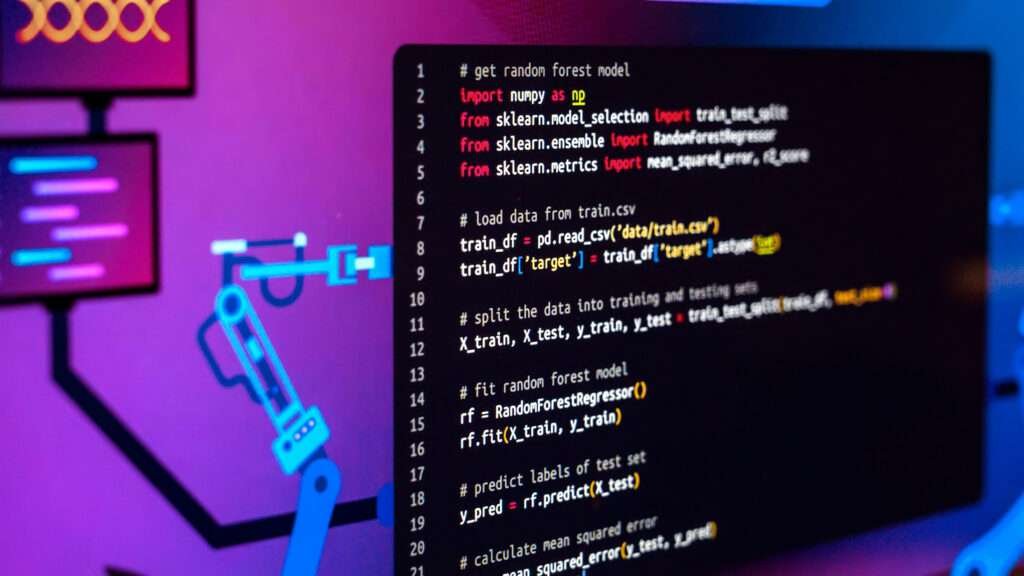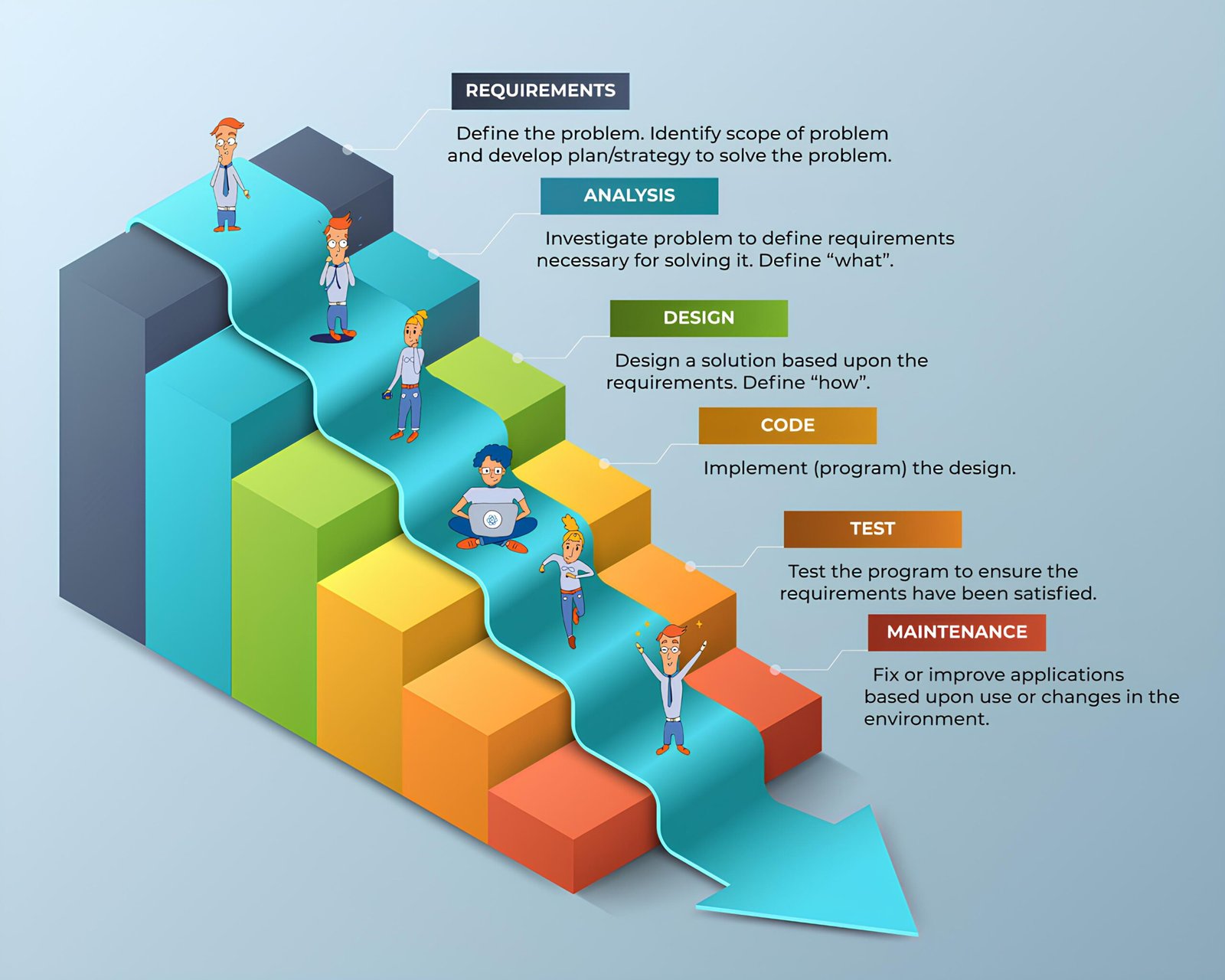Learn Python Programming: The Best Online Courses with Certificates [2024]
Maaz Khalid
May 6, 2024

In today’s fast-paced digital world, Python Programming has emerged as a cornerstone of programming, appealing to both beginners and seasoned developers alike with its simplicity and versatility. As the demand for skilled Python programmers continues to soar, the quest for comprehensive, credible learning pathways has never been more critical. Whether one aims to delve into data science, enhance automation processes, or develop cutting-edge software, mastering Python opens a myriad of professional doors, making it an indispensable skill in the contemporary tech landscape.
This article meticulously curates a selection of the best online Python Programming courses available in 2024 that not only provide a solid foundation in Python programming but also come with the added value of certification. From the foundational Python Programming courses offered by esteemed platforms like GeeksforGeeks to specialized programs such as Google IT Automation with Python, and niche offerings in data science and natural language processing from Edureka and IBM, each course is designed to equip learners with the necessary skills to excel in various Python roles. The coverage includes options for all levels of proficiency, ensuring that both novices and experienced programmers find suitable pathways to enhance their Python craftsmanship.
1. Python Programming Foundation – Self
Paced (GeeksforGeeks)
The Python Programming Foundation course offered by GeeksforGeeks is a comprehensive self-paced program designed to introduce beginners to the world of programming through Python. This course provides a solid foundation, making it an ideal starting point for those new to coding or looking to understand the basics of Python Programming.
Syllabus Highlights
The syllabus includes essential topics such as data types, control structures, functions, and modules in Python Programming. It also introduces object-oriented programming, giving students a taste of real-world applications. The course is structured to build knowledge progressively, ensuring that each concept is understood thoroughly before moving on to the next.
Duration and Flexibility
One of the significant advantages of this course is its flexibility. Students can complete the course at their own pace, making it perfect for individuals with varying schedules. The total duration to cover all the material thoroughly is approximately 50 hours, but this can vary depending on the learner’s pace.
Certificate Availability
Upon successful completion of the course, students receive a certificate from GeeksforGeeks. This certification can be an excellent addition to a resume, especially for those starting their careers in tech, as it demonstrates a fundamental understanding of Python programming.
2. Google IT Automation with Python Professional Certificate on Coursera
The Google IT Automation with Python Professional Certificate, developed by Google and offered through Coursera, is a beginner-level, six-course certificate designed to equip IT professionals with crucial skills. These skills include Python programming, Git, and IT automation, which are highly sought after in the industry. This program is particularly beneficial for those looking to advance their careers to more advanced IT roles such as IT Support Specialist or Junior Systems Administrator.
In-depth Course Structure
The program is structured into six comprehensive courses that cover a broad range of topics essential for IT automation:
- Crash Course on Python – Designed to teach the foundations of Python programming.
- Using Python to Interact with the Operating System – Focuses on manipulating files and processes on your computer’s OS.
- Introduction to Git and GitHub: Covers version control with Git and how to use GitHub.
- Troubleshooting and Debugging Techniques – Provides tools to solve common real-world IT problems.
- Configuration Management and the Cloud – Covers automation for computer fleet management using the cloud.
- Automating Real-World Tasks with Python – Applies Python to solve real-world automation tasks.
Real-World IT Problem Solving
Learners will engage with real-world IT scenarios to develop problem-solving skills. This practical approach ensures that participants can apply Python and automation strategies to tackle actual challenges in IT systems, enhancing their ability to manage resources, virtual machines, and employ Python libraries for various processes.
Duration and Workload
The certificate can typically be completed in about six months, assuming a study commitment of under 10 hours per week. This flexible schedule allows participants to balance their learning with other professional and personal responsibilities, making it feasible to enhance skills without significant disruption to daily life.
Certificate and Career Advancement
Upon successful completion of the program, participants receive a career certificate from Google, which is a valuable credential for IT professionals aiming to advance their careers. The program also provides access to career resources such as resume preparation and interview practice, and the opportunity to share your profile with potential employers like Walmart, Sprint, and Google, among others. This extensive support is designed to help learners transition into or advance within the IT field effectively.
By integrating these elements, the Google IT Automation with Python Professional Certificate offers a robust educational experience that prepares learners for a variety of IT roles, leveraging Python’s capabilities to enhance their professional trajectory.
3. Certified Entry-Level Python Programmer (PCEP) – Python Institute
The Python Institute’s Certified Entry-Level Python Programmer (PCEP) certification is designed for individuals starting their programming journey. This certification provides a solid foundation in Python programming, which is crucial for further studies in advanced programming, Python-related fields, and other technical disciplines.
Certification Details
The PCEP certification is designed to authenticate a candidate’s ability to accomplish coding tasks related to the essentials of programming in the Python Programming language. It also serves as a stepping stone towards more advanced certifications in Python offered by the Python Institute.
Course Content and Structure
The course covers fundamental Python programming topics necessary to understand and construct simple Python programs. This includes elements like syntax, semantics, the runtime environment, and the general coding techniques. Additionally, the course introduces basic programming concepts such as data types, functions, conditions, loops, as well as Python programming language syntax, semantics, and the runtime environment.
Exam Format and Duration
The PCEP certification exam is an online test that consists of multiple-choice and fill-in-the-blank questions, designed to assess a candidate’s understanding of Python programming at a fundamental level. The exam typically lasts about 45 minutes, and candidates need to demonstrate their ability to solve typical implementation challenges with the help of Python’s standard library.
Target Audience
This certification is ideal for individuals who are new to programming and wish to understand the basics of Python Programming. It is particularly beneficial for those aspiring to become software developers, proceed in a tech-based role, or pursue further education in computer science or related fields. This certification can help bolster a resume by demonstrating foundational Python programming skills to potential employers.
4. Python Institute's Certified Associate in Python Programming (PCAP)
The Certified Associate in Python Programming (PCAP) certification from the Python Institute is designed for individuals who have a basic understanding of Python and are looking to enhance their proficiency. This certification is recognized globally and is often pursued by those aspiring to secure intermediate-level positions in software development, data analysis, and other Python-related fields.
Advanced Topics Covered
The PCAP certification course delves into more advanced areas of Python compared to the entry-level certifications. It covers in-depth topics such as advanced data structures, data manipulation, working with files, error handling, and libraries essential for professional programming. The course also introduces candidates to more complex programming techniques that are crucial for developing robust and efficient software applications.
Certification Exam Insights
The PCAP examination is a rigorous test that evaluates a candidate’s ability to solve problems and write effective Python Programming code. The exam format includes multiple-choice questions and coding tasks that require a deep understanding of Python syntax and semantics. It is conducted online under proctored conditions, ensuring the integrity and credibility of the certification process.
Preparation Time
Preparing for the PCAP certification typically requires a dedicated study period of about 2-3 months, depending on the candidate’s prior experience and understanding of Python Programming. Candidates are encouraged to utilize Python Institute’s resources, including study guides and practice exams, to ensure comprehensive preparation.
Certificate Validity and Recognition
The PCAP certificate does not expire, providing lifelong recognition of an individual’s Python programming skills. It is highly regarded in the industry and can significantly enhance a candidate’s resume. Additionally, it serves as a prerequisite for more advanced certifications offered by the Python Institute, paving the way for further professional development in Python programming.
5. Python Programming Certification Training (Edureka)
Edureka’s Python Programming Certification Training course is meticulously crafted by industry professionals to align with current industry requirements and demands. This comprehensive Python Bootcamp course equips learners with a deep understanding of Python programming, covering a wide array of concepts and practical applications.
Industry-Oriented Curriculum
The curriculum of this course spans various essential Python programming concepts such as sequences and file operations, conditional statements, functions, loops, and object-oriented programming (OOPs). It also delves into modules and handling exceptions, alongside utilizing libraries like NumPy, Pandas, and Matplotlib. The course emphasizes GUI programming, web maps, and data operations in Python, ensuring a holistic learning experience.
Tools and Libraries Covered
Learners will gain proficiency in a range of tools and libraries that are pivotal in Python programming. This includes data manipulation with Pandas and NumPy, data visualization using Matplotlib and Seaborn, GUI programming with Tkinter, creating maps with Folium, web scraping, OpenCV, and Python database operations. These tools are integral to mastering the practical aspects of Python and applying them in real-world scenarios.
Course Length
The Python Programming Certification Training at Edureka is designed to be flexible, accommodating the varied schedules of its participants. It offers live online classes that start on 21st June 2024, providing an interactive learning environment. The course is structured to be comprehensive yet manageable over a period that allows for thorough understanding without overwhelming the learners.
Certification Exam Details
To obtain the certification from Edureka, participants must complete the course, engage actively in projects and quizzes, and achieve a minimum score of 80% in the certification exam. This rigorous assessment ensures that the certificate awarded represents a high standard of understanding and capability in Python programming.
By enrolling in this course, learners not only prepare to clear prestigious professional certification exams like PCEP, PCAP, and PCPP but also position themselves strongly for a successful career in various Python-related roles.

6. Python for Everybody Specialization (Coursera)
Comprehensive Beginner's Guide
The “Python for Everybody Specialization” on Coursera serves as an extensive entry point for individuals new to programming. This specialization expands on the successful ‘Python for Everybody’ course, introducing key programming concepts like data structures, networked application program interfaces, and databases, all using the Python programming language. In the Capstone Project, learners utilize the technologies mastered throughout the specialization to design and create their own applications for data retrieval, processing, and visualization.
Data Handling Skills
Learners will gain significant skills in data handling, a crucial aspect of programming and data analysis. The specialization covers the manipulation and working with various data formats, enabling professionals to process, analyze, and visualize large datasets effectively. These skills are foundational for careers in data science and analytics, enhancing code reusability and maintainability.
Specialization Duration
The time to complete the Python for Everybody Specialization can vary based on one’s schedule and experience level. However, most learners are able to finish the specialization within approximately 8 months. This flexible timeline allows participants to balance their learning with other personal and professional commitments.
Certificate upon Completion
While the specialization does not carry university credit, some universities may choose to accept the Specialization Certificates for credit. Learners are advised to check with their institution to learn more about credit recognition. Upon completion, participants receive a certificate that showcases their proficiency in Python programming, significantly bolstering their professional qualifications.
7. Natural Language Processing with Python (Edureka)
Specialized Course Content
Edureka’s Natural Language Processing using Python training is a comprehensive guide that addresses both foundational and advanced NLP techniques. The course content is designed to take participants from basic concepts such as tokenization, stemming, and lemmatization to more complex topics like syntax tree parsing and named entity recognition. It leverages Python’s NLTK package, renowned for its robust NLP capabilities, to provide an in-depth understanding of text mining and analysis.
Tools and Frameworks Used
Throughout the course, participants will gain hands-on experience with a variety of tools and frameworks essential for NLP. Python, as the primary programming language, is used in conjunction with powerful libraries like NLTK for a range of NLP tasks. Additionally, TensorFlow 2.0 is employed to implement various deep learning models, enhancing the learning experience with real-world applications.
Training Duration
The training is structured to accommodate learners with different schedules while ensuring comprehensive coverage of the syllabus. The course spans several weeks, allowing participants to engage deeply with the content at a manageable pace. This setup is ideal for those looking to balance their professional responsibilities with their educational pursuits.
Practical Applications and Certificate
One of the key highlights of this training is its focus on practical applications. Participants will work on real-time projects, applying what they have learned to build machine learning models for text classification and other NLP tasks. Upon successful completion of the course and the final project, Edureka awards a certificate, designating participants as “Natural Language Processing Engineers.” This certification not only signifies a significant achievement in the field of NLP but also enhances the participants’ credentials in the job market.
8. IBM's Python for Data Science, AI, and Development
Course Aim and Content
The “Python for Data Science, AI & Development” course offered by IBM is designed to equip learners with foundational and advanced Python skills necessary for careers in data science and artificial intelligence. This course covers a broad spectrum of topics, from basic Python programming to more complex data structures and algorithms. Participants will learn to use popular Python libraries such as Pandas, Numpy, and Beautiful Soup, which are essential for data manipulation, statistical analysis, and web scraping.
Hands-on Lab Sessions
A significant component of this course is its hands-on lab sessions, which utilize Jupyter Notebooks—a popular tool among data scientists for writing and testing code in an interactive environment. These labs allow learners to apply their theoretical knowledge in practical settings, reinforcing learning through real-world tasks such as data collection, analysis, and even automation processes.
Completion Time
The course is structured to be self-paced, allowing participants to engage with the material according to their own schedules. Typically, the course can be completed within a flexible timeframe, making it suitable for both full-time professionals and students. The estimated completion time varies, but learners can expect to spend approximately 25 hours on course material and hands-on projects.
Certificate and Career Opportunities
Upon successful completion of the course, participants receive a shareable career certificate from IBM, which can be added to their LinkedIn profiles, resumes, or CVs. This certification not only enhances their professional qualifications but also opens up numerous career opportunities in fields such as data analytics, software development, data engineering, and more. The course also encourages learners to develop a professional portfolio by undertaking projects that can be showcased to potential employers.
9. The Complete Python Bootcamp: From Zero to Hero in Python on Udemy
From Basics to Advanced Programming
The “Complete Python Bootcamp From Zero to Hero in Python” on Udemy, led by Angela Yu, is an extensive course that transitions learners from Python fundamentals to advanced programming topics. The course is structured around a “100 Days of Python” challenge, which is designed to provide a comprehensive learning experience through daily lessons and coding exercises. This structure ensures that participants not only learn Python syntax but also acquire the ability to apply Python in various real-world scenarios.
Projects and Applications
A significant feature of this bootcamp is its project-based learning approach. Participants will engage in numerous projects that cover a wide array of applications, from simple scripts to complex data analysis tasks. Projects such as building web applications, automating tasks, and implementing algorithms provide hands-on experience that is crucial for understanding the practical applications of Python. This approach helps solidify coding skills and boosts confidence in handling real-world programming challenges.
Self-paced Learning
Udemy’s platform allows students to take the course at their own pace, which is an essential feature for learners with varying schedules. The course provides lifetime access to all content, including video lectures, resources, and code exercises, making it convenient for participants to revisit topics as needed. This self-paced format is particularly beneficial for those balancing learning with other personal and professional commitments.
Obtaining the Completion Certificate
Upon successfully completing the course, including all projects and quizzes, participants are eligible to receive a certificate of completion. This certificate serves as a testament to the skills and knowledge acquired throughout the bootcamp and can be a valuable addition to a professional portfolio. For those looking to demonstrate their Python proficiency to potential employers, this certificate can significantly enhance their job prospects in the tech industry.
Conclusion
Throughout this comprehensive exploration, we have delved into an array of Python programming courses that cater to a broad spectrum of learners, from those taking their first steps into programming to seasoned developers seeking to refine and expand their Python skills.
Each course, ranging from foundational programming knowledge offered by institutions like GeeksforGeeks and the Python Institute to specialized tracks focusing on data science, IT automation, and natural language processing provided by Edureka, IBM, and Google, is meticulously designed to empower learners with not just theoretical knowledge but practical proficiency in Python programming. The detailed insights into course structures, content highlights, duration, and certification details underline the significance of selecting the right course to meet individual learning goals and career aspirations.
As the digital landscape continues to evolve, the demand for skilled Python programmers is only set to increase, emphasizing the critical nature of these courses in preparing individuals for the technology-driven future. The certifications awarded upon course completion are not merely certificates of achievement but are potent career catalysts that can open doors to numerous opportunities in the tech industry.
Whether one seeks to embark on a new career path, upgrade existing programming skills, or specialize in cutting-edge technology areas, these Python courses provide a solid foundation and pathway towards achieving those professional goals. In embracing these learning opportunities, individuals arm themselves with the tools necessary to navigate the complexities of modern technology and contribute significantly to the progression of the digital world.
Subscribe to our newsletter to receive future updates on Technology, Artificial Intelligence (AI), and Tech Trends. Explore our categories to find more relevant stuff. Stay informed and motivated with our most recent insights!



